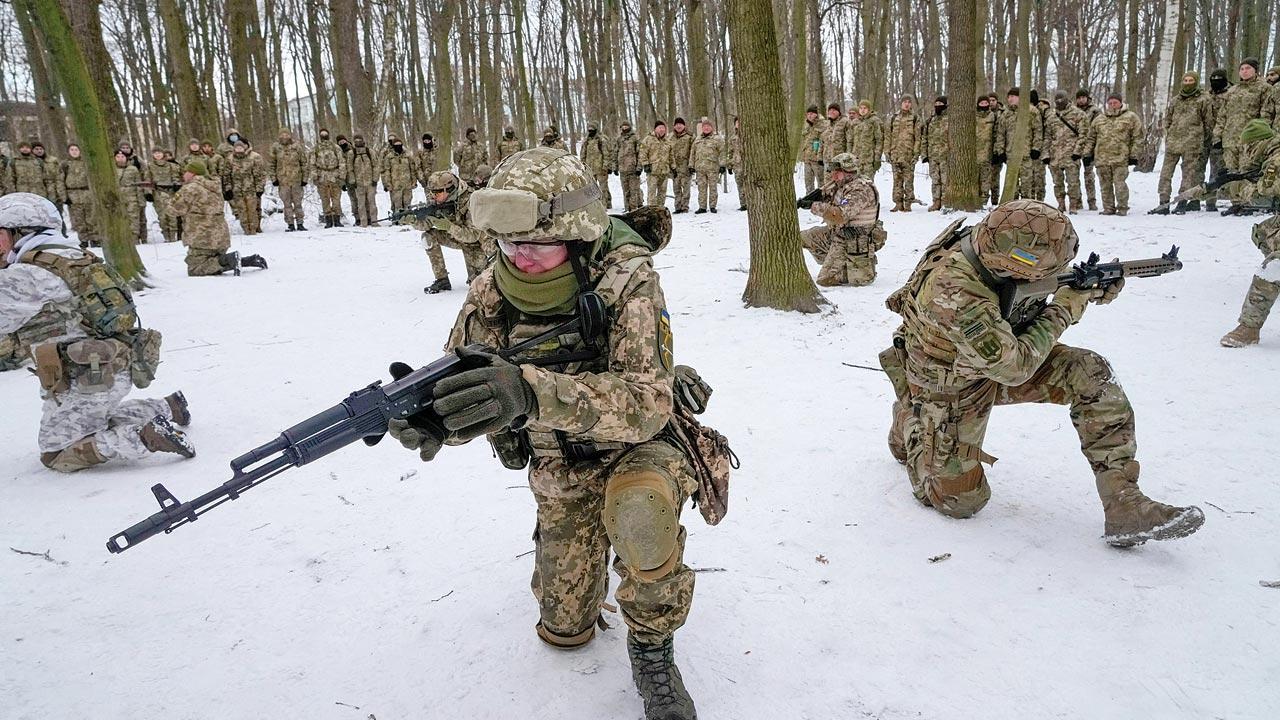Home / News / World News / Article /
NATO outlines ‘deterrence’ plan as tensions with Russia soar
Updated On: 25 January, 2022 09:01 AM IST | Brussels | Agencies
The Western alliance’s statement summed up moves already announced by member countries, but restating them under the NATO banner appeared aimed at showing its resolve. It was just one of a series of announcements that signaled the West is ramping up its rhetoric in the information war that has accompanied the Ukraine standoff

Members of Ukraine’s Territorial Defense Forces, volunteer military units, train in Kyiv, Ukraine, on Saturday. Dozens of civilians have been joining Ukraine’s army reserves amid fears about the Russian invasion. Pic/AP
Tensions soared Monday between Russia and the West over concerns that Moscow is planning to invade Ukraine, with NATO outlining potential troop and ship deployments, Britain saying it would withdraw some diplomats from Kyiv, and Ireland denouncing upcoming Russian war games off its coast as unwelcome.
The Western alliance’s statement summed up moves already announced by member countries, but restating them under the NATO banner appeared aimed at showing its resolve. It was just one of a series of announcements that signaled the West is ramping up its rhetoric in the information war that has accompanied the Ukraine standoff.



